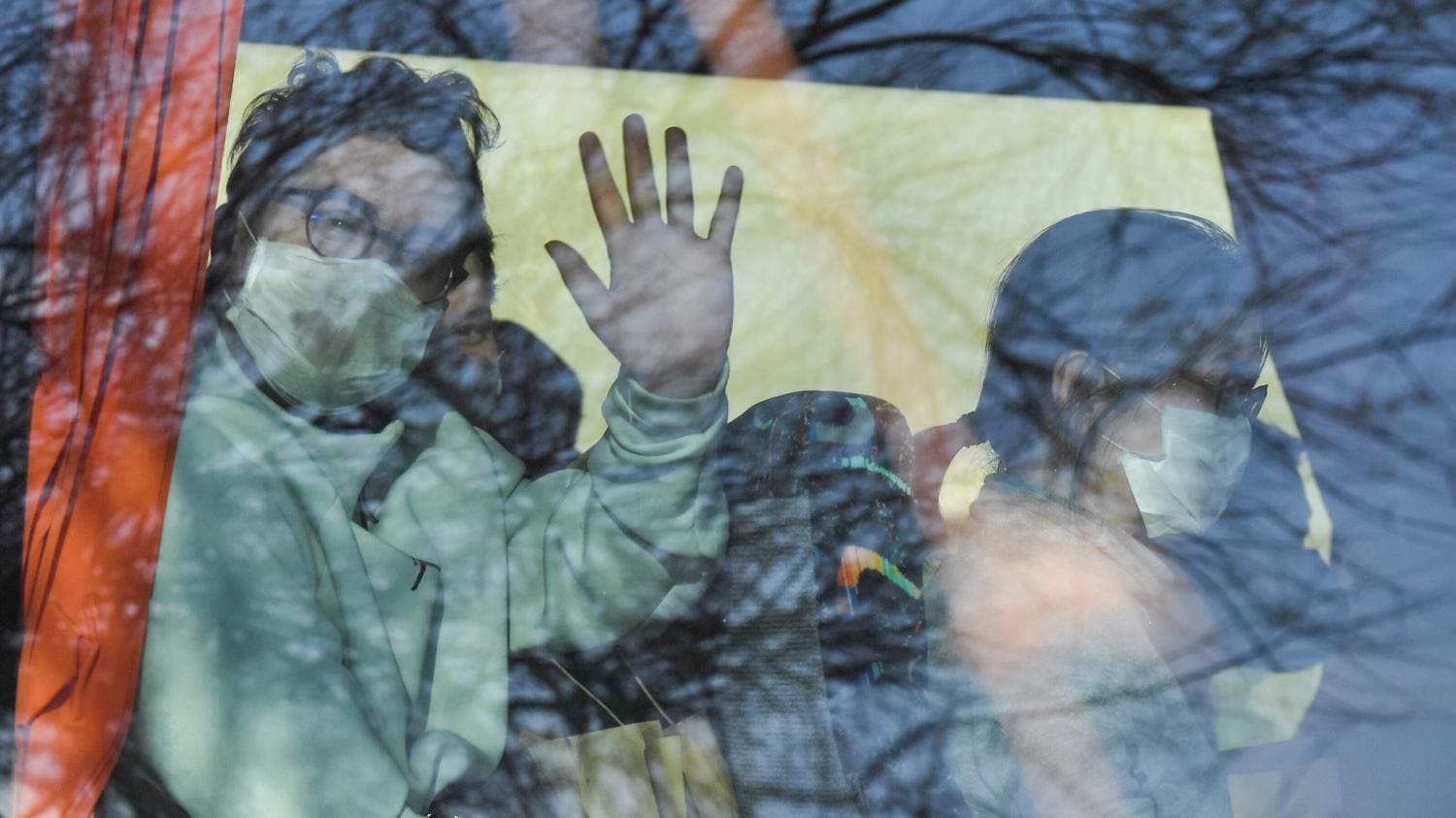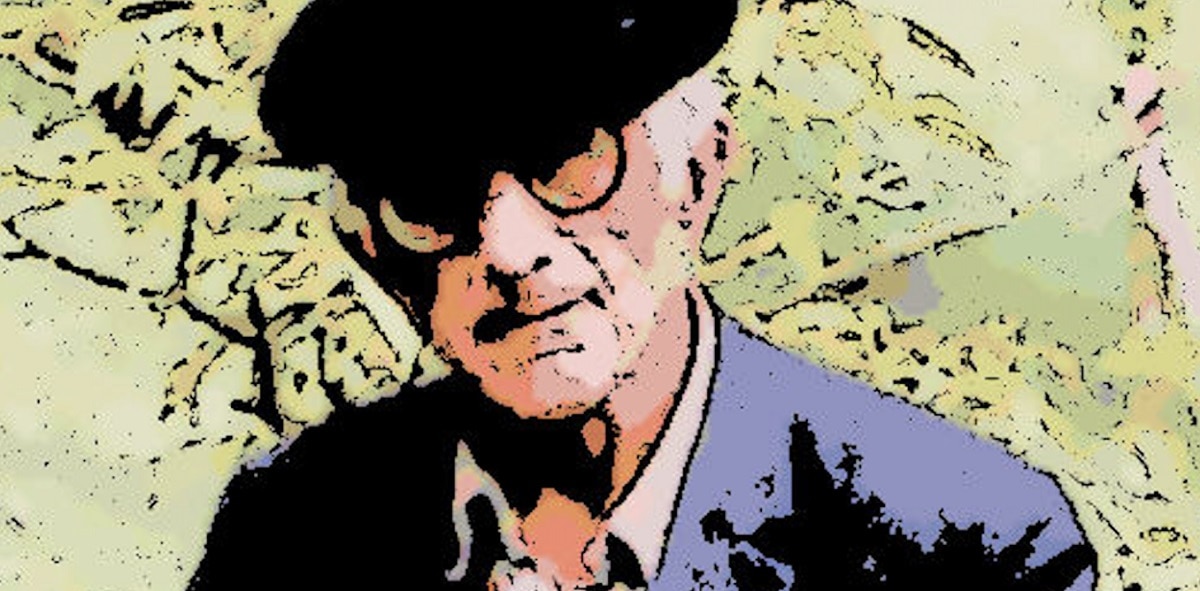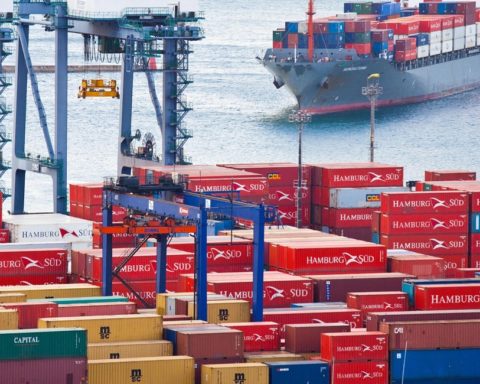Every day the number of people infected and deaths due to coronavirus passes a milestone. China is by far the most affected region in the world, despite the exceptional measures that the country has taken. Draconian measures to lock up tens of millions of people in quarantine zones. Measures using the means of personal recognition, digital denunciation, disclosure of personal data, which make the coronavirus look like Orwellian. Would these measures be applicable in a democratic country like France? Are they a necessary step towards effective action to curb the pandemic? Professor of medical ethics Emmanuel Hirsch sheds light on this question.
In China, officially 1,380 victims of the Covid-19 (formerly 2019-nCov) coronavirus have been counted to date, out of a total of 60,564 people infected, including more than 60,000 in China. As a reminder, in 2002-2003 SARS caused 774 deaths worldwide.
The WHO considers the epidemic threat from this new coronavirus to be a public health emergency of international concern, however, there is no indication that the situation in China prefigures what other countries may face. In France in particular, there are no public indicators today that would justify amplifying the feeling of concern..
Nevertheless, we must ask ourselves how a pandemic could have a lasting impact on daily life, disorganize society, disrupt reference points and balances, and accentuate circumstances of vulnerability.
Would our society be prepared to assume the consequences of such a situation, along with other major risks? What measures would make it possible to anticipate them? Is there not a societal dimension to the measures prescribed in the "plan of action" under the authority of the General Secretariat for Defence and National Security?
Health safety is not just a matter for experts...
In 2009, the influenza A(H1N1) of 2009, caused by a new virus to which the world population's immunity had been particularly limited, had created management challenges for health authorities. Several parliamentary reports are devoted to this issue, including that of the Senate Committee of Inquiry on Influenza A of 29 July 2010. "Influenza A (H1N1): A look back at "the first pandemic of the 21st century" ".
Why not enjoy unlimited reading of UP'? Subscribe from €1.90 per week.
At the time, Patrick Lagadec, a specialist in unconventional crises, believed that it would be necessary in the following years:
"to clarify the unprecedented challenges of the crises now on the agenda and which will present us with these objects in indefinable forms, subject to potentially rapid change, diffracting on all dimensions from the scientific to the ethical, from logistics to geostrategic, from the local to the universal."
Ten years later, who can say that this recommendation has been integrated into the decision-making processes? Admittedly, the H1N1 episode has led to feedback, and a health crisis such as the one linked to the Covid-19 coronavirus is now anticipated in the framework of carefully prepared preparedness plans.
However, the global destabilisation that this type of crisis produces seems to have been addressed mainly through supposedly protective epidemiological measures, such as health controls and border closures.
However, these measures have an impact that can only be measured gradually, particularly in areas where the epidemic is most widespread: mistrust caused by their implementation, feelings of fear, temptation to withdraw into oneself, risks of political instability and disorder, increased vulnerability, obstacles to the movement of people and economic exchanges, consequences on global financial balances, etc.
Strengthening solidarity
"From a public health perspective, we know that protecting others is the best barrier to protecting ourselves. »
This reminder from the French Society of Public Health, formulated in 2009remains current. As does the rest of the statement:
"Trials can bring people together as they can dig even deeper in the ditches. The foundations for solidarity must be laid now within the family unit, between neighbours, in companies and between countries with similar characteristics to our own, but also with countries with low health resources. »
Indeed, we must not forget that the spread of a virus generates a paradoxical feeling towards the other: if the vulnerability we share with him brings us closer, the fact that he is a potential carrier of the contaminating agent can generate mistrust towards him and even discrimination.
A point that is also underlined by the French Society of Public Health:
To fight against disinformation and to favour analyses that decipher the news, join the circle of UP' subscribers.
"If solidarity has a meaning and a vital interest, in such circumstances it can only be as broad as possible. In this spirit, health safety is not only a matter for experts, it is also part of a process of health democracy. »
We need to fight together to succeed in facing the threat, which requires a political and geopolitical approach to strategies involving the various components of our societies.
Currently, the expertise sought is that of security and public life officials, scientists and health professionals. One can only appreciate the accompaniment of the information with discernment, balance and concern. Would it be different if circumstances, one day or another, justified restrictive or even authoritarian measures having an impact on the entire population?
What would it be like if its involvement were to impose itself other than in the reassuring context of a discourse that suggests that the situation is under control, that proportionate measures and simple benevolence will preserve this climate of serenity without the slightest hindrance?
The example of SARS in Canada
On March 13, 2003, the health crisis related to severe acute respiratory syndrome (SARS) began in Canada. A report from the National Advisory Committee on SARS and Canadian Public Health analyzed the conditions under which the decision-making process was developed, in a context of uncertainty and public controversy. Among other things, it stated that:
"The SARS epidemic has caused a number of ethical problems. Decision-makers had to balance personal freedoms against the common good, fears for personal safety and the obligation to treat the sick against economic losses and the need to contain the spread of a deadly disease. Decisions have often been made with limited information and in a very short timeframe. »
At some point we may be faced with complex decision dilemmas that need to be arbitrated in a hurry. Their consequences could prove formidable from the point of view of the values of our democracy and the exercise of our political responsibilities. Have we prepared ourselves for this other challenge that a major health crisis would expose us to?
The importance of fair and non-discriminatory arbitrations
In a democracy, social acceptability and public order are conditioned by the rigour of the arbitrations, their justification notably in terms of justice and non-discrimination, a requirement of loyalty and integrity. We must be assured that the country's best interest in the security management of the crisis does not give rise to mistrust, or even dissent, which would add a political crisis to the health crisis.
This is particularly important in the current context. For the past two years, France has been experiencing the circumstances of social movements that have surprised not only by their violence, but above all by revealing resentment towards the legitimacy of the authorities and even the State. Facts, speeches or expertise are often contested or even revoked, particularly on social networks. The issues of credibility and admissibility of public discourse are crucial.
These considerations are as much uncontrollable data as the deregulation of relations between nations in geopolitical terms.
The pandemic threat may, of course, give rise to solidarity other than in the sharing of knowledge and resources among scientists, but without reducing the temptation to withdraw, or even to dissent and positions that are resistant to the common good.
The Committee of Inquiry into the way in which the vaccination campaign against influenza A (H1N1) in 2009 was planned, explained and managed warned, for example, that :
"The mistrust of immunization is a challenge for the future. Tomorrow, we may face another pandemic with more severe severity. The mobilization of society will then be indispensable. What will we do if we no longer believe in public health measures? It is today that we must convince, explain and, if necessary, counter-argue. »
Has the feedback from 2009 been the subject of public initiatives and anticipatory approaches as as recommended in July 2010 ?
Nothing is less certain.
A prescription that is still too vertical
Since 2004 our country has adapted its pandemic influenza plan: it constitutes the roadmap for the organization of public authorities' management of the 2019-nCov. The current management conditions attest to the soundness of its recommendations.
However, despite administrative precision in the drafting of practical information sheets adapted to the multiplicity of anticipated circumstances, will it be possible, as the objective is set,to maintain "[...] a social consensus around ethical principles" and "[...] a strong bond of trust between government authorities and the population"?
While consensus should be sought, it is not clear whether the position adopted by the General Secretariat for Defence and National Security in 2011 in its "National Plan for the Prevention and Control of the Influenza Pandemic" takes into account the need to involve the different components of society in decision-making. The effectiveness of these decisions will nevertheless depend to a large extent on understanding, acceptance and ownership of their modus operandi. Has the concern for society's involvement within the framework of a relationship of trust based on transparent rules been identified and taken into account?
Admittedly, the principle was chosen to "allow everyone to freely consult the plan.". But is it with a vertical prescription, from top to bottom, that we mobilize an atomized society composed of individuals who are not always aware of the imperatives of the common good?
This approach seems somewhat out of step in a context of conflicting expertise, contestation of public discourse and a strong expression of the need for mediation and consultation in decision-making processes.
A consensus based on shared ethical values is essential.
While the imperatives of defence and national security are obvious, the search for consensus would also be the result of reflection in the human and social sciences, whose bodies and expertise have been favoured in recent years.
Everyone's adherence to choices that would be binding is certainly due to the quality of clear and relevant explanations, but also to the conditions for implementing tried and tested procedures that respect the commitments made and are mindful of the rights of individuals, particularly those in vulnerable situations. This is the approach adopted in preparing society for the risks of terrorist acts.
After the attacks of January 2015, the CNRS has embarked on a research strategy in the human and social sciences of great interest, through its contribution to the analysis of phenomena and the production of scientific data useful for public policies. Apparently, nothing comparable has been supported in preparation for a health crisis.
In July 2007, theEthical space/PA-HP had taken the initiative to make a referral to the National Ethics Advisory Committee (NEAC) regarding ethical issues raised by a possible influenza pandemic. This referral led to the publication of theopinion n°106 of 5 February 2009 in which the NEAC argues that a severe pandemic "may require prioritization of access to health care resources, an effort of solidarity, and a commitment from the professionals most at risk. A consensus on shared ethical values is essential to preserve the cohesion of society. »
A few days later, on 20 February 2009, the General Secretariat for Defence and National Security took up this recommendation almost word for word in its "National Plan for the Prevention and Control of the Influenza Pandemic"..
However, in practice, no body dedicated to deepening the societal aspects of a health crisis has to date been officially entrusted with a mission whose timeliness was nonetheless essential.
A "Civic Initiative and Vigilance Committee" that has remained virtual
It is true that Xavier Bertrand, as Minister of Health and Solidarity, had wanted the creation of a Civic Initiative and Vigilance Committee on a flu pandemic and other exceptional health crises. The decree n° 2006-1581 of 12 December 2006 even lays down its tasks, specifying in its Article 1 that it is responsible for :
"to propose to the Government any action that could improve the ownership of the population in the prevention and control of the influenza pandemic and other exceptional health crises and to contribute to strengthening the mobilization of the population in the face of such a pandemic. »
However, although referred to in some official documents as a reference, this structure seems to have remained virtual.
Xavier Bertrand had also set up an "ethics and influenza pandemic" steering committee under the authority of the interministerial delegate for the fight against avian influenza. In March 2007, its work was terminated. However, the functions of this committee could have been transferred to the National AIDS and Hepatitis Council. Created in 1989 during the HIV epidemic and extended to viral hepatitis in 2015, the quality of the work and the representativeness of the members of this structure could have justified entrusting it with this mission.
Visit second government plan for the prevention and control of "flu pandemic" of January 6, 2006, totally overshadowed the ethical and societal issues at stake. I then intervened publicly on two occasions twice, in a context that was, to say the least, indifferent, in order to encourage political leaders to take into account the socio-political aspects that were essential to the coherence of the plan and the admissibility of the recommended measures.
Three years later, on 8 September 2009, we launched a widely supported manifesto with journalist Éric Favereau. Published in the daily Libérationit was entitled "Our concern is to preserve democracy".
Things seem different today, since the current plan recognizes the relevance of this approach. All that remains now is to initiate it and to give it public expression, if only to contribute to the accountability of everyone and to the sharing of decisions that concern democratic life.
Contribute to a measured and relevant awareness of society
The law of 5 March 2007 on preparing the health system for large-scale health threatsdetails the means and procedures, in particular with the intervention of the health reserve corps.
The selected strategies are implemented by bodies such as the Operational Centre for the Reception and Regulation of Health and Social Emergencies (CORRUS) and theHealth emergency preparedness and response facility (EPRUS), whose expertise is recognized.
From an organisational point of view, there is no reason to doubt today the relevance of the choices and the effectiveness of the measures. We have witnessed this in France in recent weeks. Nevertheless, nothing should encourage us to neglect the possibility of social mobilization other than through information, however timely and controlled it may be.
Expertise other than that of competent biomedical scientists should necessarily contribute to the relevance, adaptability and acceptability of public discourse.
Published in 2009, the collective work that I directed following consultations and conferences - Influenza pandemic: the order of mobilization - The project will restore the diversity of expertise in the human and social sciences to be mobilized. While our reflections are still current, they should be deepened in a university setting conducive to such research. In 2009, it was fitting for us to :
-
to identify and gain recognition for the human and social aspects to be taken into account in the development of strategies to combat a pandemic;
-
to question the values to be mobilized in a context of societal crisis;
-
to strengthen the demand for accountability and justice in the management of a crisis of international scope;
-
to better characterise the vulnerabilities accentuated in the context of a pandemic in order to prevent different forms of discrimination or neglect;
-
to reflect with the most committed professionals on the fight front on the conditions of their practices, particularly from the point of view of the necessary arbitration.
The social sciences can help to inform public decision-makers by enriching analyses with their expertise based on available research and others to be developed.
Building field networks, supporting research/action: the example of the fight against AIDS
The phenomena of fear, violence and discrimination are reinforced as feelings of threat, insecurity and powerlessness to act increase, but also the impression of concealment of the facts, or even unpreparedness in a context favourable to the amplification of controversies. These are considerations that require concerted practices.
When the AIDS pandemic emerged in the 1980s, it became clear that the fight against HIV would only be effective and sustainable if everyone was involved and understood the issues at stake.
In addition to the exemplary mobilization of associations, one of the major innovations of the National AIDS Research Agency (ANRS) at the time was to support remarkable research/action in the field of the human and social sciences.
It is thus, through an understanding of reality, that a relationship of trust has been built up between society, experts and those responsible for public health, which is essential for the implementation of public policies in terms of information, prevention, access to care and practical solidarity.
The creation of solidarity networks as close as possible to the realities on the ground makes it possible to preserve the social links and cohesion necessary for concerted action. In this respect, the health reserve that was set up in 2007 following the chikungunya episode in Reunion would today represent a necessary capacity for initiative. It is in fact made up of volunteer health professionals who can be mobilised by the State very quickly in the event of an exceptional health situation.
Raising society's awareness of risks
For reasons that could be explained, we have lacked the time for a national consultation to raise awareness of risks that, as we know, are not limited to viral threats. Indeed, these questions would arise just as much if tomorrow we were faced with a crisis situation of a different nature: nuclear, radiological, bacteriological or chemical (NRBC).
Such challenges need to be considered from a political point of view and be accompanied by democratic consultation. Admittedly, in the context of the current crisis linked to Covid-19, the response of the public authorities, which has been adapted to suit the situation on a daily basis, does not seem to give rise to the slightest mistrust. However, it would be unwise to give the impression that a health crisis, the threat of which no one can ignore or conceal, would thus be brought under control in all circumstances.
Is it not therefore justified, if only because communication now seems to be perfectly mastered and calmed by reassuring data, to envisage a measured, relevant awareness of our society to the realities of a major health risk?
It would thus prepare for it in a responsible manner, helping to think together, in the framework of public consultation, about the principles and values to be asserted and defended in a struggle that must be fought as democrats. Let us remember that in its etymology, a pandemic concerns "the whole people".
Emmanuel Hirsch...Professor of Medical Ethics, Paris-Saclay University
This article is republished from The ConversationUP' Magazine's editorial partner. Read theoriginal paper.
![]()












